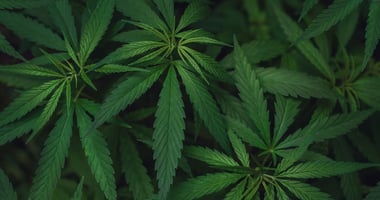Legalization of cannabis was associated with small but significant increases in opioid use disorder...
Cannabis Legalization Associated With Increase in Opioid Use Disorder

Legalization of cannabis was associated with small but significant increases in opioid use disorder (OUD) between 2005 and 2022 among patients receiving care in the Veterans Health Administration (VHA), according to a report in JAMA Health Forum. During the same period, states that did not legalize cannabis saw a decrease in OUD.
Zachary Mannes, Ph.D., of Columbia University Irving Medical Center, and colleagues wrote that the results do not support cannabis legalization as a means of reducing the burden of OUD. “These are timely considerations given that the U.S. government has considered cannabis policy reform for the VHA.”
Using VHA electronic health records, the researchers examined yearly state-level rates of OUD among more than 3 million patients who had at least one VHA encounter from January 2005 to December 2022. Patients were considered positive for OUD if they received one or more OUD diagnoses during an outpatient or inpatient encounter at any VA health care facility each year.
Each patient’s state of residence was categorized yearly as having no cannabis laws, medical cannabis laws (MCL), or recreational cannabis laws (RCL). From 2005 to 2022, 37 states and Washington, D.C., enacted an RCL and/or an MCL. (All states with an RCL also enacted an MCL.)
In states that enacted MCL only, OUD prevalence increased among VHA patients from 1.13% in 2005 to 1.19% in 2022, while OUD prevalence decreased from 1.12% to 1.06% in states without cannabis laws. OUD prevalence remained stable in states that enacted an MCL and then an RCL.
Among patients with chronic pain, MCL and RCL enactment was associated with a 0.08% and 0.13% increase in OUD prevalence, respectively. The largest change in OUD prevalence was seen among adults ages 65 to 75 years with chronic pain following RCL enactment—a 0.23% increase. RCL was also associated with a 0.12% increase in OUD prevalence among older adults without chronic pain.
“Cannabis use may be associated with an increased risk of consuming other substances, either by providing more opportunities through access to the same illicit markets or peers who use drugs, or by lowering the threshold for addiction to other substances, including opioids,” the researchers wrote. “Our results should encourage careful regulation of cannabis distribution following legalization and monitoring of OUD symptoms among patients residing in MCL/RCL states, alongside concerted surveillance efforts in older adults who may be particularly susceptible to cannabis and opioid use risks.”
For related information, see the Psychiatric News article “Medical Cannabis Laws Do Not Cut Opioid Death Rates, Study Finds.”
(Image: Getty Images/iStock/Zenkyphoto)
Don't miss out! To learn about newly posted articles in Psychiatric News, please sign up here.





